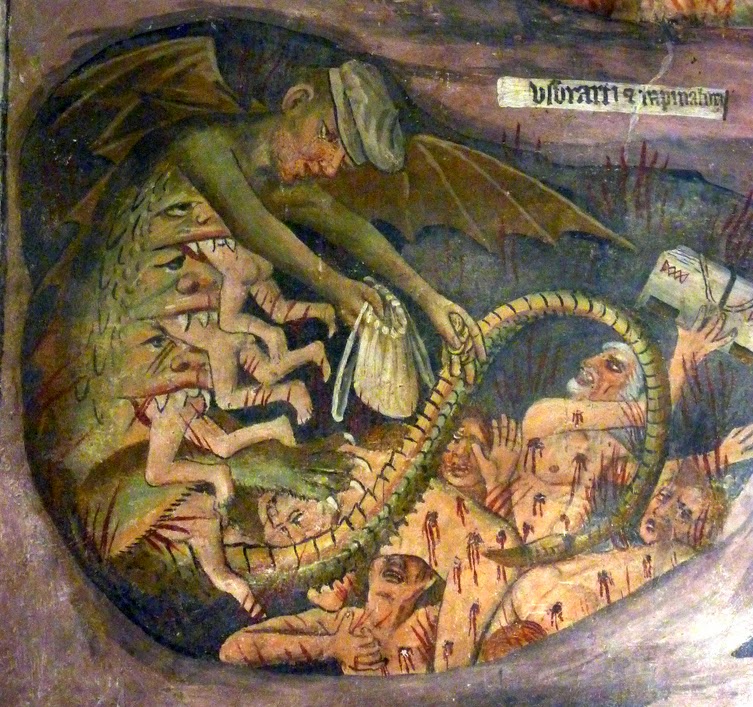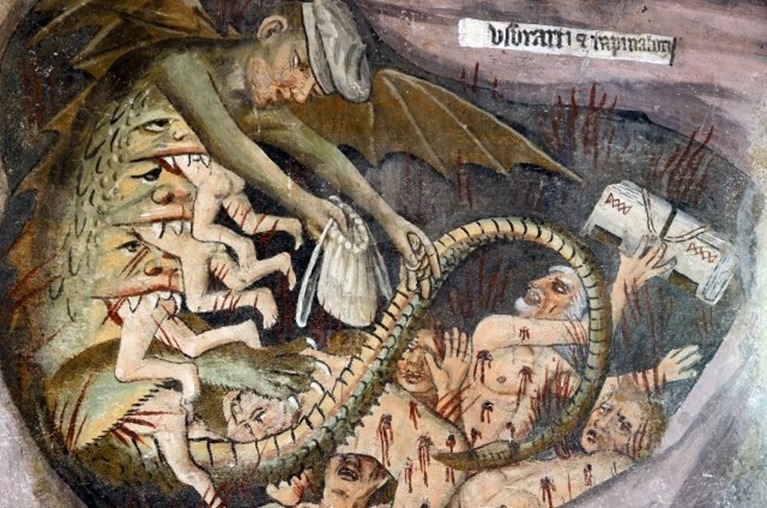Sven Longshanks
Daily Stormer
December 17, 2014
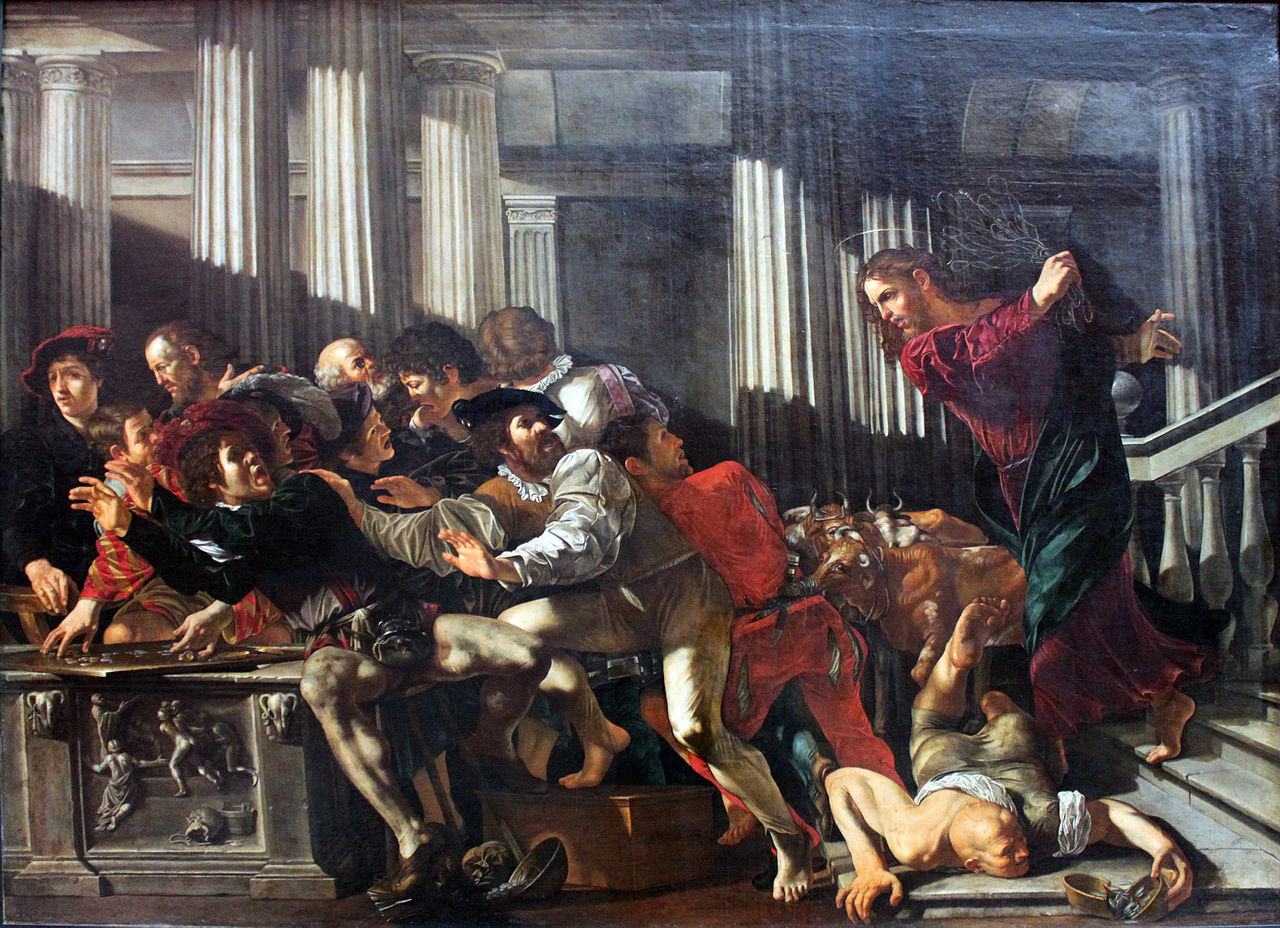
What is Usury?
Usury is loaning money and asking for more in return than the original amount loaned.
Gradually over the years usury has been redefined from being an amount asked for on top of the principle amount of a loan to just being “excessive interest.” This has been a slow process, happening over the last 500 years, but before that, usury had its original and true meaning which is asking for anything over and above the principal amount loaned when paying back a loan.
It was seen as unjust earnings and four times worse than theft in legal terms. Although it is usually applied today only to money, which is not a thing in itself but a measure of value, back then it did not just apply to the loaning of money, but to the loaning of anything. You would not loan a coat to somebody and expect a pair of trousers with it to come back and the same common sense applied to the loaning of money.
The church saw it as a mortal sin and prosecuted it as such for 1500 years, with usurers being refused absolution, their will and testimony being nullified and their descendants deprived of all inheritance, usurers would have no Christian burial and all their possessions would be seized and distributed among the poor.
It was seen as being against the divine law, natural law and man’s law, as it was gaining an increase through unnatural means and cheating man of the time that God had given him, by using it up in paying for something which did not exist and was not a part of the loan.
The prohibition on usury led to the concept of a ‘just price’ and a living wage, which was enough for a man to support a wife and four children. It was the intrinsic value of the work or product to the community that mattered, not making a profit on it for the individual. Supply and demand were no reason to raise prices, to charge more than the correct price was a sin and competition or monopolies were unheard of.
People did trade at a profit, but they did not trade for profit. The object of working was to help your community, not yourself and the living wage was adequate, but not luxurious. Without the community the individual would have nothing, so to seek to make a profit from that community for doing nothing other than your duty to it, was quite rightly seen as wrong. The rich were looked upon with suspicion and pity and they were required by their own faith to give to the poor, or to loan to them expecting nothing back on top.
The mediaeval guilds determined what the just price and the living wage were. In the middle ages, 14 weeks of the year were all that a labourer needed to work for in order to provide for his entire family. In their spare time, the people would help build the cathedrals and churches throughout Europe which were all built voluntarily with no debt or mortgage involved. This also became a good way to learn new skills.
A usurer did nothing to help his community, he forsook husbandry or merchandise and instead was a parasite, worse than a thief, since thieves only stole from the rich and out of necessity. The usurer wished for others to lack so that he might profit. Even the word ‘profit’ has had its meaning changed from that of ‘to advance, or to progress’ to ‘a pecuniary gain resulting from employment of capital in a transaction’ thanks to usury.
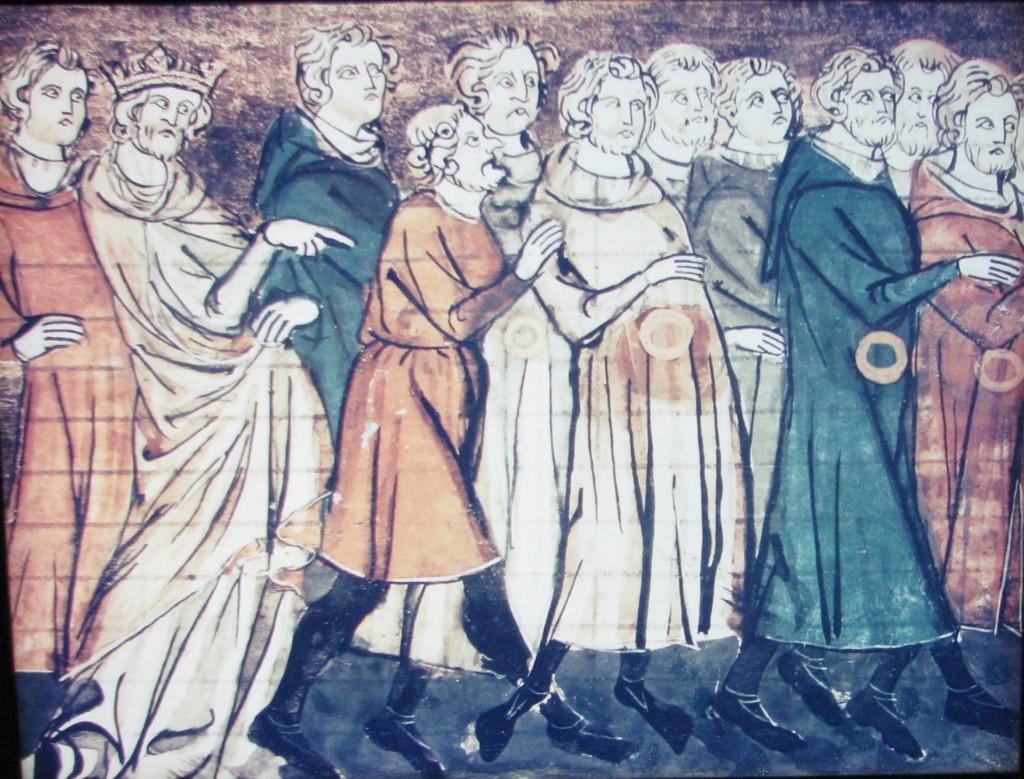
The Jews and Usury
Usury was practically unheard of in Europe until the Jews entered and a large part of the reason for this was the church teaching on it. Alfred the Great included the laws and punishments for usury when he collected the ancient laws of Britain together into one place and these differed from the Roman laws, which allowed the charging of interest but only to a certain extent.
It was by following the Roman laws as opposed to the Biblical laws that the Popes would gradually relax the Catholic church teaching on usury later on, which was then imitated by the Protestants. If there had not been two laws in operation, one for the Jews and one for the Christians, this situation where the church chose to ignore Biblical teaching on the subject would not have been able to arise. The Jews were first brought into Britain by William Norman in 1066 to act as tax collectors for him. When they arrived they also began loaning out money and because they were not Christian, they were able to argue that they should not have to follow Christian laws. Any decent king who cared for his subjects would not allow anyone into their country that did not have to follow the same laws as everyone else and the good kings of Britain up until this time had refused to allow any Jews in.
As well as lending money out they also started clipping the coins, melting the slivers down and then smuggling them into Europe. This was the origins of the spy network that the Rothschilds would later make use of to gain inside information on the battle of Waterloo, eventually transferring secrets from the royal courts instead of the wealth of one country into another. Along with depriving the nation of its gold and bleeding the peasants dry through usury, the Jews also started abducting children and torturing them to death. This last outrage was the final straw and Edward I expelled them from the country in 1290.
It is a great shame that the popes and Kings of Italy did not immediately do the same, but instead they tolerated the Jews and allowed them to set their money lending operations up, where they soon started fleecing the poor again and ingratiating themselves with the aristocracy. It was the result of the Jews making the poor even poorer that became the excuse for the Catholic church to start up their own version of a bank.
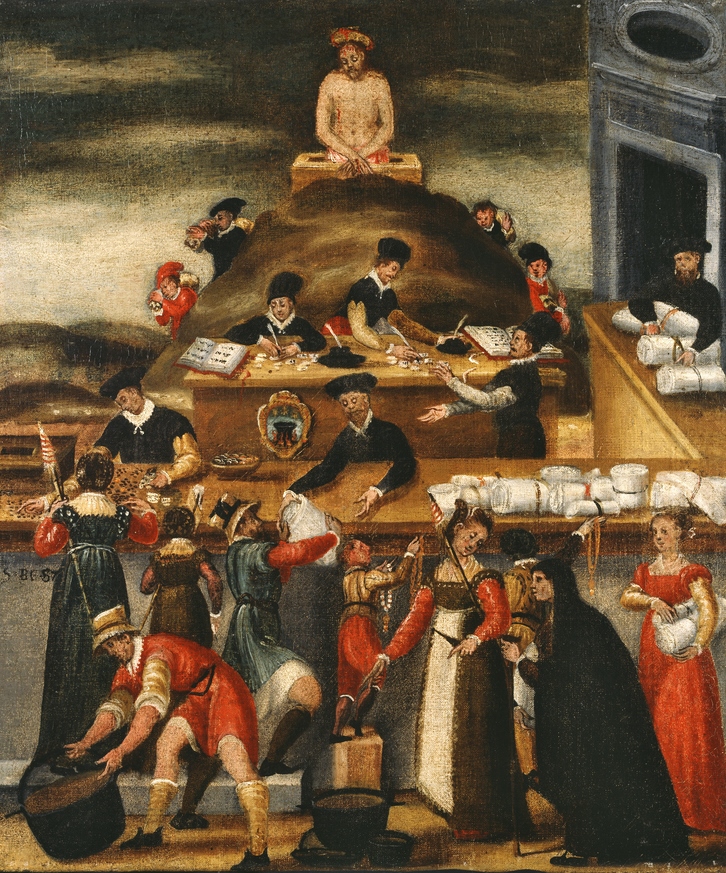
The Gradual Rise of the Usurious Bank
The ‘Monte de Pieta’ was supposed to be a charity bank and the first one was set up in Florence around 1350. Its brief was to provide loans to the poor to prevent them from being preyed upon by the Jewish money lenders, but they themselves started stealing people’s time, by claiming that charges for administration needed to be made. However in Britain a real one was set up by Bishop Michael Nothburg, with a deposit of 1,000 silver marks that were lent in exchange for pawned objects, no charges for admin were made at this genuine charity bank as it was run by people who gave of their time for free to help the poor, rather than to make a profit.
Gradually the Monte de Pieta grew, until it was funding the state of Florence and charging the people the equivalent of taxes to pay for it. It offered an interest rate for deposits as well as collecting interest on the loans. Eventually 86% of the debts were owed to the richest 10% of the province, who also happened to be the ones setting the interest rates.
In 1382 a usurer’s legal indulgence was proclaimed, absolving them from civil and criminal prosecution and the ‘just price’ started to be challenged by the lawyers, who wanted the right for every man to make the best bargain he could for himself. Prior to this, even charging more for goods on credit had been seen as theft.
As the renaissance dawned, the Italians started looking to Roman law for ways to justify their sinful banks, rather than looking at Biblical and Christian precedents. Emperor Justinian had set a standard that the popes were to end up following, condemning usury on the one hand, while setting acceptable rates for it with the other. The Italian lawyers claimed that laws must change to keep pace with the time, that usury was a worldly necessity and that the ban on it was a ‘product of irrational superstition’. They started undermining the guilds that had previously set the ‘just price’ and revived the Roman laws that legalised usury and permitted speculation in prices.
Eventually in 1515, Pope Leo X declared the charity banks to be ‘meritorious’ and that anyone who disagreed was a heretic. This was an unprecedented overthrow of Christian social justice and enabled the Jewish money lenders to team up with the Gentile ones, under the cover of ‘protecting the poor from usurers’. It caused a complete reversal from the original meaning of commerce, which had formally been a way of interacting with and giving back to the community, and now became a way of taking from the community with individual material gain its primary motive. The economy had changed from being one of ‘mutual protection, to being one of unilateral capitalist exploitation.’
In England Henry VIII changed the law to follow the example of the Pope in 1538 but Edward VI banned it again in 1545 calling it ‘unnatural and equivalent to man-slaughter or homicide, entirely wrong in itself and damnable.’
Unfortunately King Edward’s usury ban only lasted until 1571, where it was repealed by Elizabeth I’s parliament. All mention of God and his law against usury disappeared and instead ‘acceptable’ rates of usury were set, making it allowed if it was at no more than 10%. In 1600 the East India Trading company caused the demand for loans to grow and usury became an integral part of the monarchy’s economic model, with James I’s absurdly titled ‘law against usury’ making it seem a normal and necessary part of life by 1624.
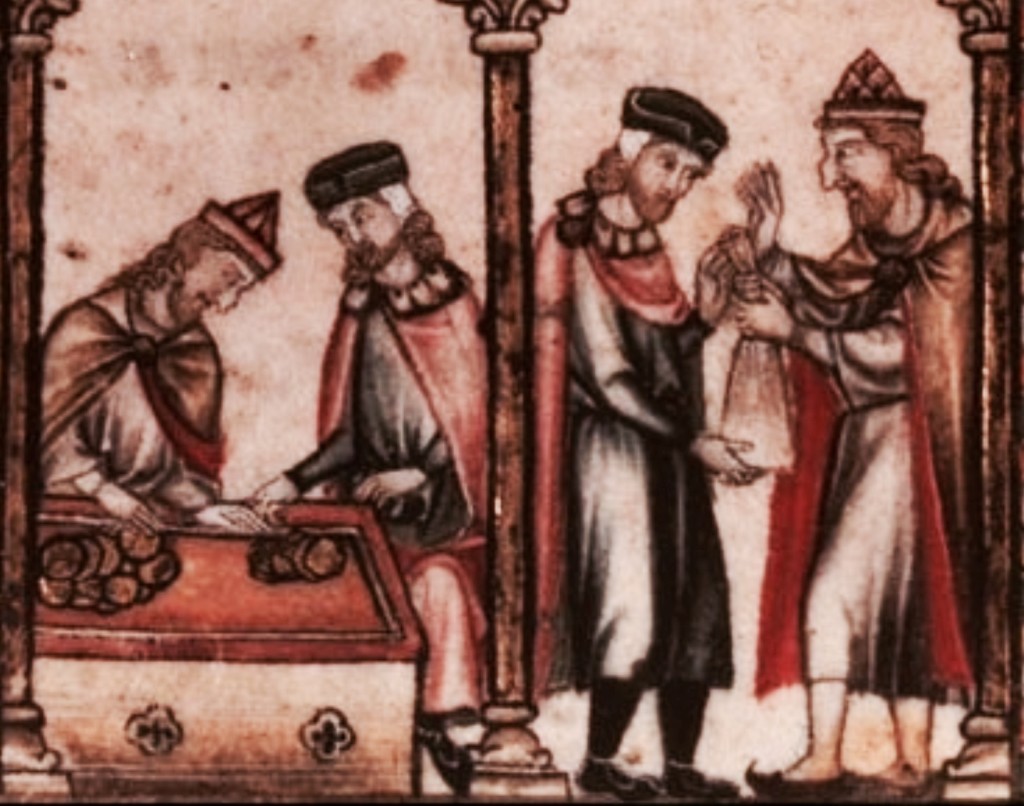
The Jews Enter Britain Again
It was shortly after this that Oliver Cromwell overthrew King Charles I and had him beheaded in 1649, with an army financed by Jewish bankers from Holland. The Jews then managed to talk Cromwell into allowing emissaries of theirs back into England so that they could make their case for being allowed back in to the country. Cromwell eventually succumbed to malaria after doing incredible amounts of damage to Britain, starting a civil war in England, executing the rightful king and then going to war against Ireland. After he died, he was dug up again and hanged for his crimes, before being beheaded himself and his head stuck on 24 foot spike on top of Westminster hall.
The next King, Charles II officially allowed the Jews back into the country again but the law for expelling them still remains on the books, as you cannot undo laws. It is just waiting there to be revived. The Jews had no loyalty to Charles though and straight away started plotting to depose his heir and brother King James II, the last Catholic King of England with the help of William of Orange. Once Dutch King Billy had the reigns of the country, he repaid the Jews who had helped him by giving them a charter allowing them to call themselves ‘The Bank of England’ in 1694. It looks very much like he gave away the sovereign right of the nation to create its own money, in exchange for him being put on the throne of England.
It was from here that they were then able to start fractional reserve banking, which means loaning out much more than you could ever cover in deposits, because nobody ever asks for all the deposits back all at once. They were able to fund other banks throughout Europe all working to the same principle and had no shortage of people wanting loans in order to trade with the far reaches of the empire and the New World.
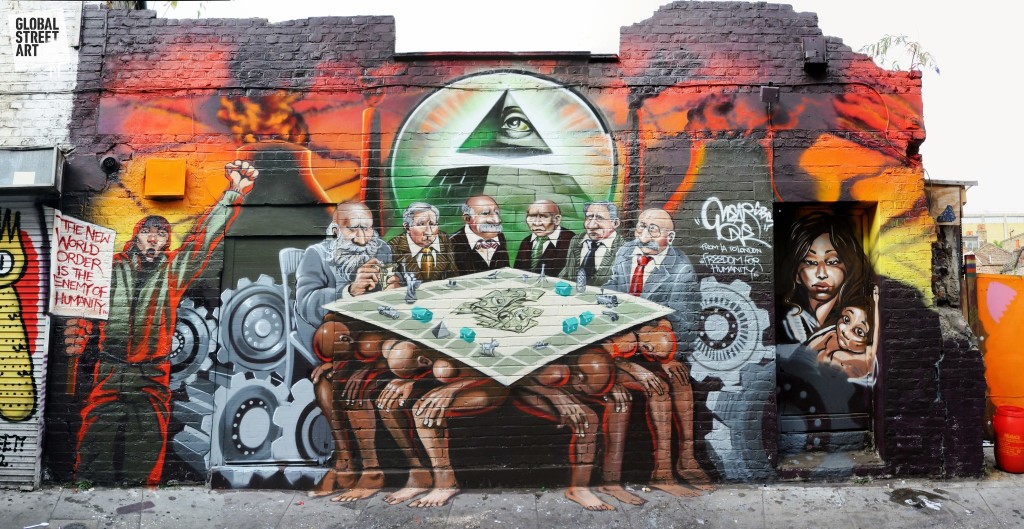
The Rise of the Rothschilds
In 1745 Pope Benedict XIV expanded Pope Leo X’s law, to make interest on investment credit capital legal and allowed ‘certain other titles to run parallel with the loan’. Shortly after this the Rothschild family began banking using the smuggling routes mentioned earlier as communication lines, with which they were able to get inside information on Waterloo and crash the London Stock Exchange. By doing this they were able to buy up controlling shares in much of the industry of Britain as well as the banks themselves, replacing the few gentiles that had been involved in it since the lifting of the restrictions by the Church.
The first loan from a Rothschild bank to the pope was in 1832 and by 1850 there had been another, for 50 million francs. In 1857 Peter’s pence was pledged as collateral and by 1872 the Holy See was upping the allowed interest rate to 8%. In 1918 Benedict XV proclaimed that it was not illicit to reap a legal profit from loans and by 1983 John Paul II had actually made it a requirement of all church admins to ‘invest for profit all funds not needed for expenses’.
This is far removed from the original church teaching for clergy and laymen alike, which can be summed up with this quote from the council of Tarragona, canon II: ‘Whosoever will be in the clergy, let him be careful not to buy too cheap, or sell too dear, or let him be removed from the clergy’.
From the bank of England the Jews were able to start the World Bank and the IMF and decouple banking entirely from the precious metals that it had started with. This eventually had to happen, as once you add interest to the system it has to continually expand, in order for there to be enough currency in circulation to pay back the previous loans. If you lend out a hundred pounds, there is only a hundred pounds in circulation that can be paid back, so if the bank asks for more than a hundred back, the only way for the extra to be found is if another loan is taken out somewhere which puts the extra money into circulation. You can see that this system is terminal and will always cause inflation and savings to lose their original value.
This is the real reason why the banking system crashed, it was an deliberate flaw built into the system right from the beginning and this is why the divine law forbids the taking of any interest, no matter how small the amount.
